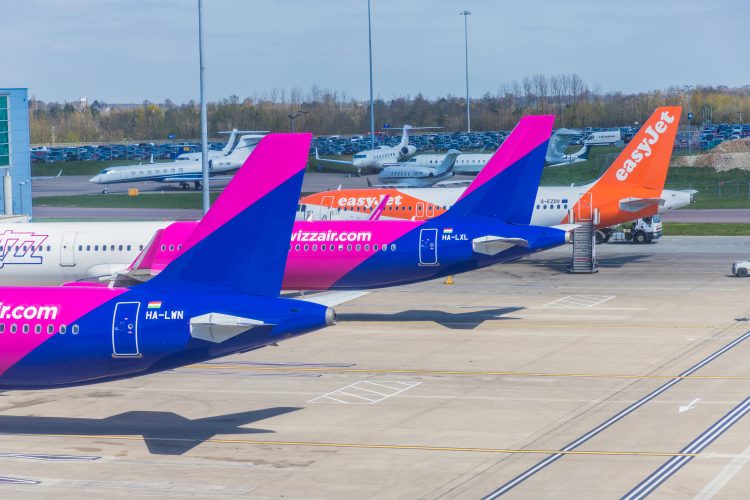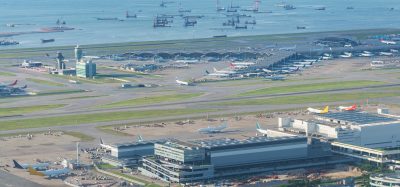London Luton Airport and Wizz Air champion net zero with new generation fleet
- Like
- Digg
- Del
- Tumblr
- VKontakte
- Buffer
- Love This
- Odnoklassniki
- Meneame
- Blogger
- Amazon
- Yahoo Mail
- Gmail
- AOL
- Newsvine
- HackerNews
- Evernote
- MySpace
- Mail.ru
- Viadeo
- Line
- Comments
- Yummly
- SMS
- Viber
- Telegram
- Subscribe
- Skype
- Facebook Messenger
- Kakao
- LiveJournal
- Yammer
- Edgar
- Fintel
- Mix
- Instapaper
- Copy Link
Posted: 14 May 2024 | International Airport Review | No comments yet
The quieter, more fuel-efficient Airbus A321 Neos will now operate Wizz Air’s flights.


LLA & Wizz lead the way with new generation fleet.
London Luton Airport (LLA) and Wizz Air have confirmed a new fleet of Wizz Air aircraft to be based at the airport; the quieter, more fuel-efficient Airbus A321 Neos. It comes after both LLA and Wizz Air made agreements to introduce the new generation aircraft a year earlier than planned.
From 31st March 2024, the switch to the Airbus A321neo aircraft means flights operate at a 20% reduction in fuel consumption and half the amount of nitrogen oxide emissions compared to Wizz Air’s previous generation aircraft [1].
This latest initiative is indicative of the ambitious commitments coming to fruition through LLA’s Responsible Business Strategy which sets out how the airport will minimise the environmental and societal impact of its operations while making travel more sustainable.
Alberto Martin, Chief Executive Officer at London Luton Airport, comments: “This agreement with Wizz Air establishes a new-generation fleet of quieter, more fuel-efficient aircraft at London Luton Airport that will significantly reduce carbon through lower emissions. As part of our efforts to achieve Net Zero for airport emissions by 2040, we are continually looking to address sustainability challenges and achieve carbon reductions in line with our Responsible Business Strategy commitments. Our partners also play a critical role in helping us meet our environmental responsibilities and this milestone is the latest example of the advances we are making by working together with airlines.”
Marion Geoffroy, Managing Director at Wizz Air UK, said: “London Luton Airport is very important to Wizz Air and remains a focus for continuous investment. We already have strong sustainability credentials, operating with the youngest fleet in the UK[3].
“We are focused on new technology and innovation and feel confident that fleet renewal is a key solution available here and now to reduce emissions from aviation. Replacing older aircraft at our London Luton Airport base with the newest and more fuel-efficient Airbus A321neo is part of our long-term fleet renewal strategy to reduce carbon intensity by 25% by 2030. We are delighted to work together with LLA on finding new solutions that help us to reach our targets.”
Last year, LLA became one of the first major UK airports to achieve Level 4 of the globally recognised Airport Carbon Accreditation scheme, having demonstrated that it is transforming its operations to achieve carbon reductions in line with global climate goals. LLA has also been ranked as a sector leader for two consecutive years in the Global Real Estate Sustainability Benchmark (GRESB) benchmark of sustainability governance management and performance of major infrastructure assets worldwide.
According to aviation intelligence and data specialist RDC Aviation Data, proportionally more flights from LLA were operated using new-generation aircraft than all other major European airport between April and August 2023.
[1] Based on the comparison between Airbus A320neo and Airbus A320ceo aircraft families.
[2] Data gathered from aviation intelligence and data specialist RDC Aviation shows that the increase in next generation aircraft accounted for 33.52% of total departures from LLA, ahead of second place Budapest Ferenc Liszt Airport and third placed Lisbon Airport, with Milan Orio Al Serio and Athens Eleftherios Venizelos making up the top five (excluding Turkey).
[3] Average age of aircraft is 1.53 years.
Related topics
Aircraft, Airlines, Emissions, Green energy, Sustainability, Sustainable development


















